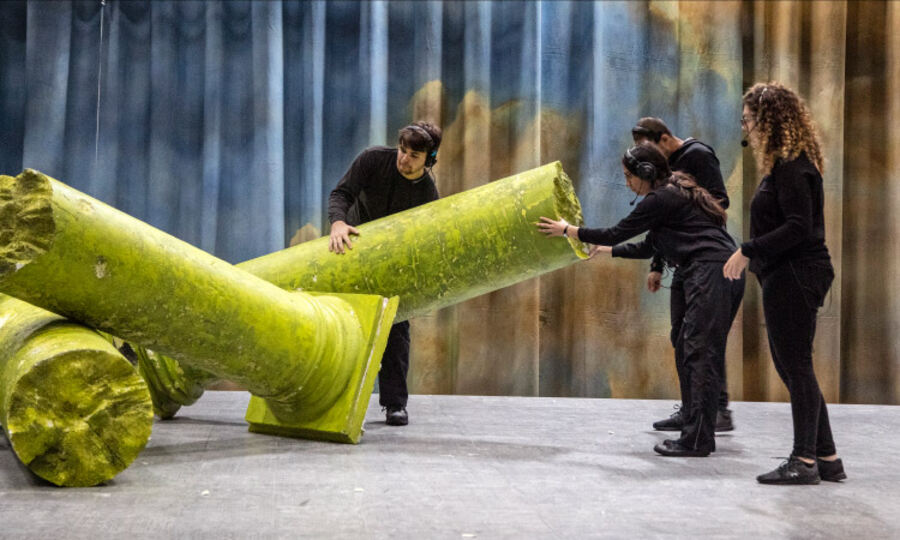Rosie Brownlow-Calkin, in the article “Unfinished Business: What Theatre Schools Should Also Be Teaching” (Winter 2025), is generally correct in diagnosing “that undergraduate theatre training programs have a moral imperative to prepare students for the profession, not simply teach them to be good at what they do.”
However, the prescription—that students ought to be taught things like “how to shoot a self-tape or build a website” and how much rents are in NYC—fails to acknowledge that the system itself is dysfunctional and exploitative. Anyone who spends even a few minutes with the employment numbers published by Actors Equity should be deeply disturbed that more than half of Equity members don’t make a dime from working in theatre. And of those that do make any money, the average annual income is less than six months of rent. Saying “life in the business will be tough” isn’t just an understatement, it is malpractice.
If theatre departments really wanted to help theatre majors with their entry into the theatre, they would be taught how to create companies and self-produce in cities and towns across America, instead of focusing on preparing them for the dysfunctional con job that is the New York theatre scene—and I include the regional theatres who have abandoned the purpose of the resident theatre movement and have become mere outposts of NYC. Theatre majors would do well to read Todd London’s An Ideal Theater for examples of the resident theatre tradition, and theatre professors would do well to start thinking in terms of alterative paths to a life as an artist. As Brownlow-Calkin rightly says, “The times, they are a-changin’”; they’re just changing a lot more than theatre professors seem willing to admit.
Scott Walters
Emeritus Professor of Drama
University of North Carolina Asheville
I’m writing in response to Rosie Brownlow-Calkin’s excellent article, “Unfinished Business,” in which she documents a list of best practices for training programs to better serve students entering the perpetually developing industry of theatremaking. I especially appreciated her inclusion of the value of continued mentorship from faculty; I believe that we have a dearth of true artistic mentorship in the industry right now, and we will benefit from any encouragement in this regard.
In addition to her valuable list of current practices, I wanted to suggest one additional way training programs might better prepare their students for a life in the arts: I think training programs should require students to develop a survival job skill.
To include this in an artistic training program might sound off-base, or even jaded, but I speak from 10 years experience in pursuing a professional acting career. We all know that the vast majority of actors (and theatremakers of all types) will depend on income from other work. According to the Actors Equity Association’s 2023-24 Annual Report, there were 271,562 work weeks that season, completed by AEA’s 47,717 active members. That works out to a discouraging (and oversimplified) average of 5.7 work works per active member. Nowhere close to a livable income. To speak from my own experience, even in a recent Off-Broadway contract, my fellow actors were also realtors and office workers.
With the reality of the industry as it is, working other jobs is an inextricable part of pursuing a life in the arts. Shouldn’t a training program include some formal mention of those needed skills, as well as artistic training?
I don’t mean to suggest significant resource investment, but having at least a class meeting or two within an industry prep course would help students jump-start their thinking about that part of their lives. I was fortunate to get some good guidance from a friend before my big post-graduation move to New York City, and as a result I had a tutoring job lined up when I arrived. Had I not had this guidance, I am certain that my adjustment would have been much rockier. I think this is one small way that training programs can further set up their students for success in a life in the arts.
Neil Redfield
New York City
Support American Theatre: a just and thriving theatre ecology begins with information for all. Please join us in this mission by joining TCG, which entitles you to copies of our quarterly print magazine and helps support a long legacy of quality nonprofit arts journalism.





